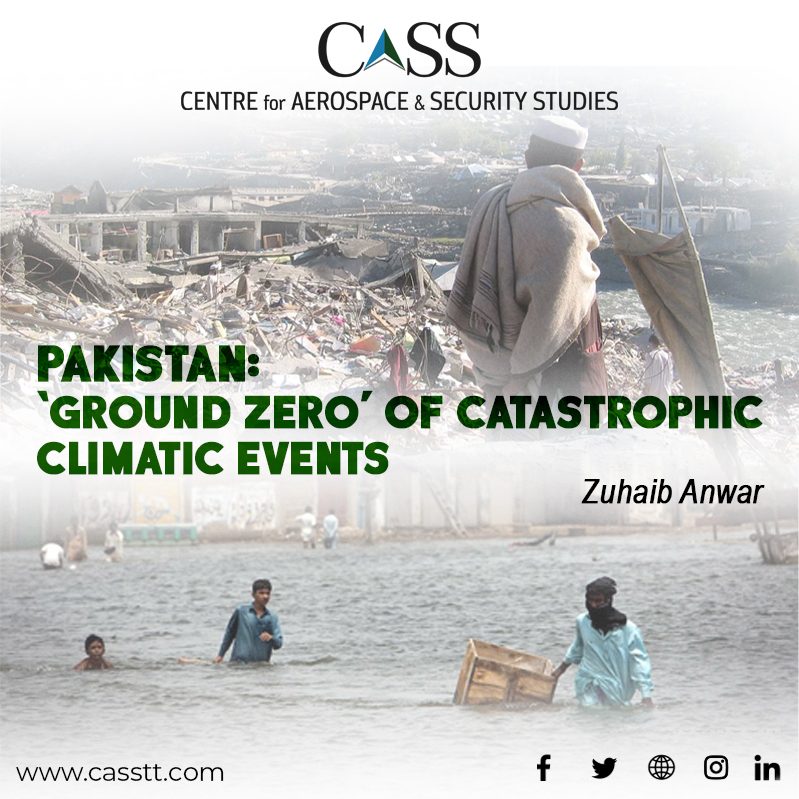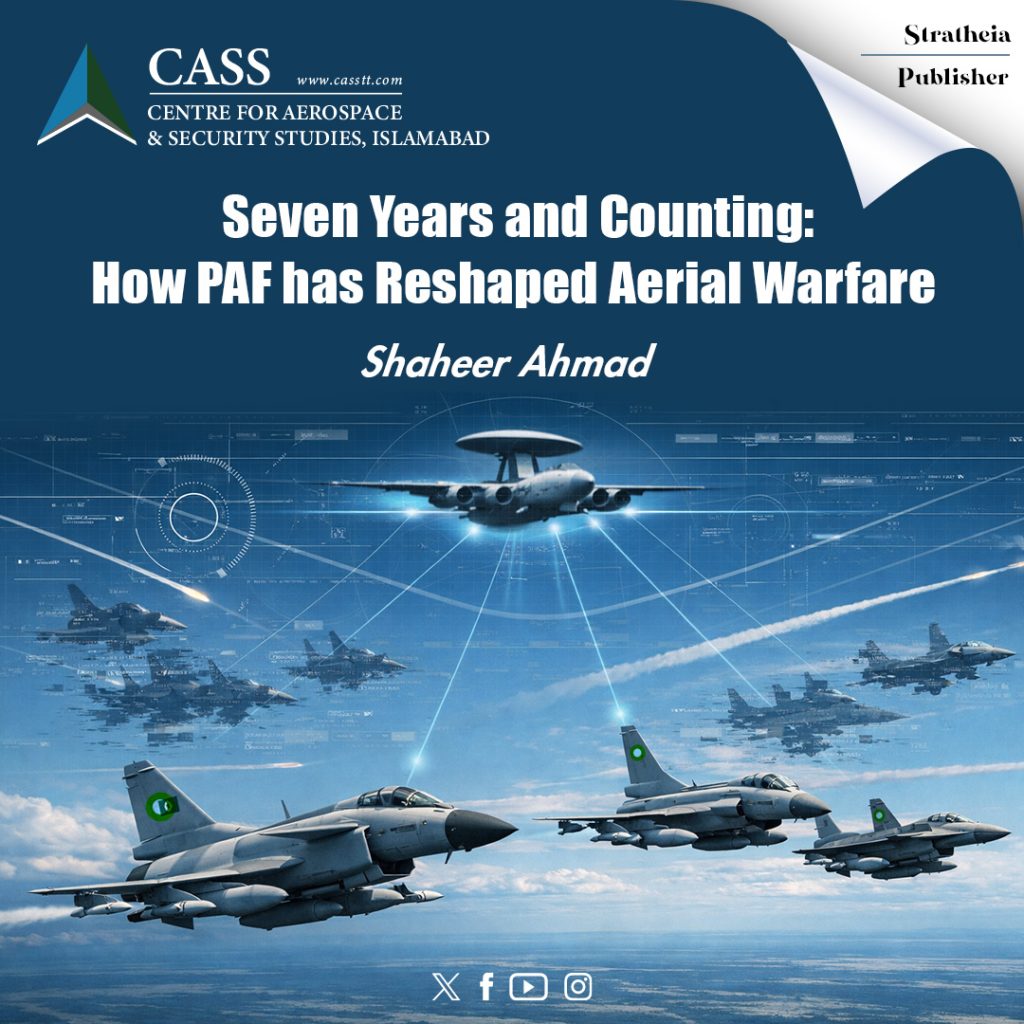The world is witnessing unusual weather patterns ranging from prolonged dry spells causing droughts, wildfires, melting glaciers melting and famine in several parts of the world, to torrential rainfall leading to monstrous floods in others. Scientists earlier predicted that around 2035, the world will surpass the 1.5oC global warming threshold due to excessive Greenhouse Gas (GHG) emissions. Crossing the threshold would mean the world will be 1.5oC warmer than it was during the second half of the Nineteenth Century before fossil fuel emissions from industrialisation began to ramp up. However, more recent studies suggest that there are greater chances that the world will pass the 1.5oC threshold between now and 2027. Scientists predict that this year, the world will witness El Niño that will bring extra heat to the surface of the Pacific Ocean likely pushing the global temperature to a new high next year and Pakistan again will be one of the top ten affected countries.
While GHG emissions are certainly the biggest cause of the rise in global temperature, the latter is not affecting everyone equally nor is everyone equally responsible for it. The ten most developed/industrialised countries contribute 68% of the global emissions. In terms of impact, countries that are the lowest contributors are the most vulnerable. Pakistan is one of those countries with a carbon footprint of less than 1% and has become ‘ground zero’ of catastrophic climatic events.
In 2022, the country experienced record-high temperatures in March and April – the warmest since 1961 followed by the outbreak of ‘never-seen-before’ wildfires. The extremely hot spell was followed by record rainfall, particularly in the southern parts of the country that resulted in flash floods impacting the lives of millions of Pakistanis, who have yet to completely recover from the damage. This year Pakistan is again expected to get more than average rainfall, increasing the risk of more devastating floods. This situation can lead the country into a perpetual disaster, rehabilitation and recovery cycle, significantly hampering its economic growth and development.
The government has actively advocated its case at global forums, including at COP27, and played a leading role in efforts to convince developed countries to pay compensation through the Loss and Damage Fund established under the United Nations auspices for the affected countries. However, it is a voluntary fund, and the record of developed countries is not very encouraging when it comes to their GHG emission payments. The Adaptation Fund, established in 2001, in its fourth Review Meeting noted ‘with concern the continued issues related to the sustainability, adequacy and predictability of funding…which affect its ability to fulfil its mandate.’ Given such lacklustre performance, one wonders if these advanced economies can be trusted about their commitments in the latest Loss and Damage Fund.
Hence, Pakistan should not completely depend upon foreign help to deal with the impact of climate change. We need to take charge of our affairs because the negative impact of climate change is increasing with each passing year and waiting for external funds (promised by the developed countries) does not seem to be a wise option. The government needs to work on both mitigation and adaptation strategies on a priority basis. On the mitigation front, Pakistan has made some efforts under the Ten Billion Trees Tsunami Programme. Other measures can include deploying renewable energy at a mass scale and replacing internal combustion car engines with electric vehicles etc. The country has huge reserves of copper and cobalt which are key components in the production of electric batteries; these reserves should be exploited to help mitigate the impact of climate change.
On the adaptation front, Pakistan should build small and large dams on a priority basis to regulate the flow of water during the rainy season. Communities most vulnerable to floods should be educated and trained to swiftly evacuate in case of floods. Furthermore, a specialized quick response force should be established (as proposed by NDMA) that can move efficiently in case of flash floods or other climatic disasters.
Dealing with climate change, especially floods, should be a top priority. While the government has been effectively advocating the case of Pakistan globally, there is also a need to simultaneously update its national disaster risk reduction plans at the domestic level before it is too late.
Zuhaib Anwar is a Research Assistant at the Centre for Aerospace & Security Studies (CASS), Islamabad, Pakistan. He can be reached at [email protected]





